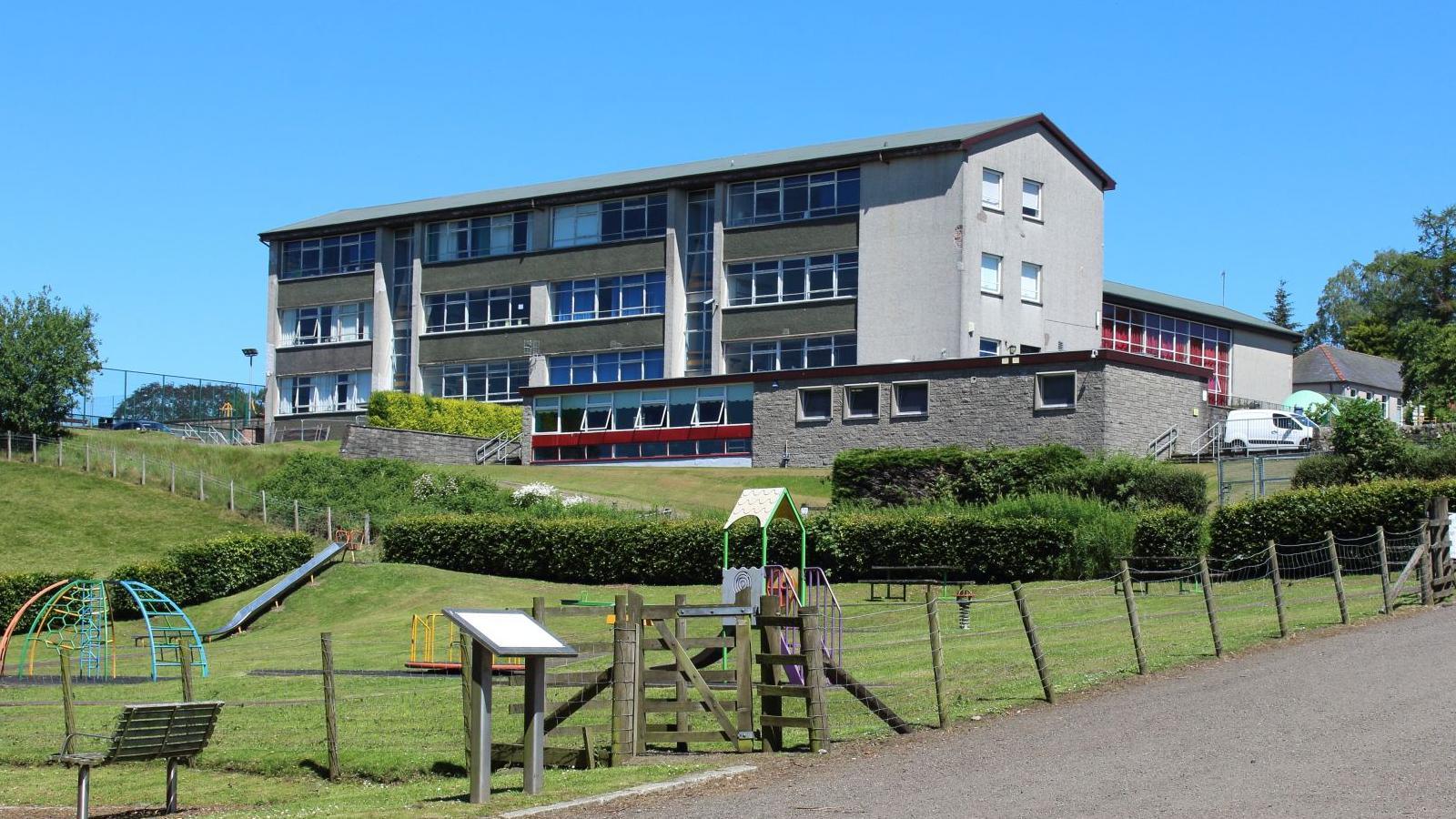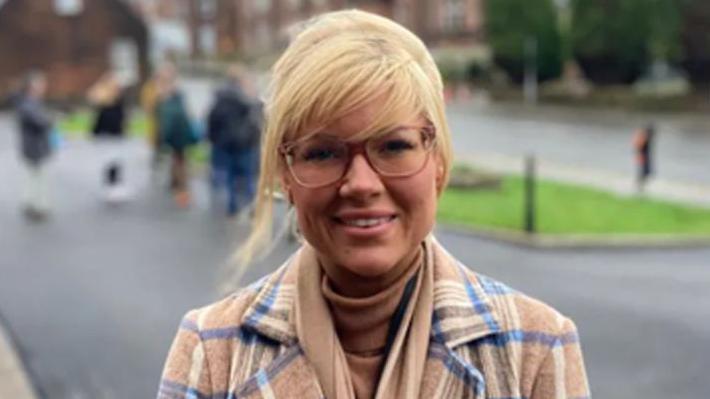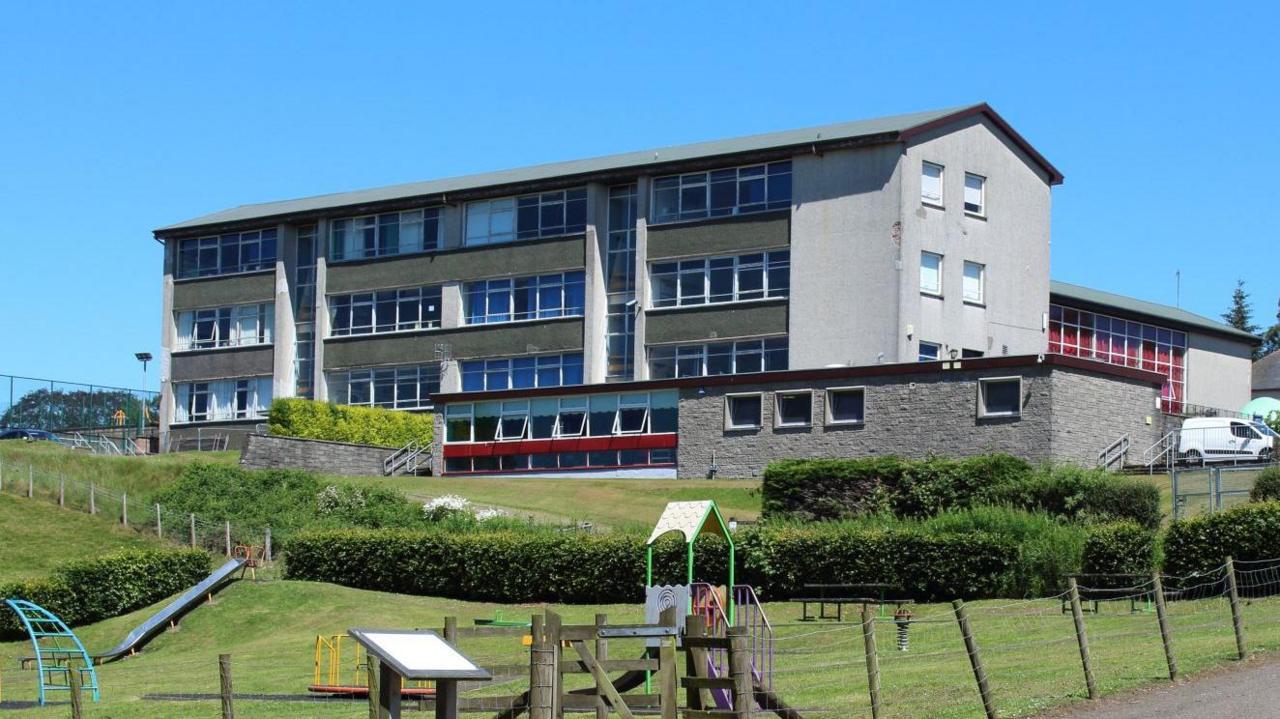Parents hit back over rural secondary pupil costs

Stewart Wilson said remote schools like Dalry were given a degree of protection in order to help fight rural depopulation
- Published
Parents at a rural secondary in southern Scotland have hit back after a report showed it costs nearly £50,000-per-pupil to run.
The parent council at Dalry Secondary in Dumfries and Galloway said it felt the figure had been "taken out of context".
It highlighted that the overall cost of the school was low compared with others and a tiny fraction of expenditure on secondary education across the region.
A full report looking at the sustainability of provision is being examined by the local authority.

Dalry Secondary had 17 pupils at the time the cost study was carried out
Earlier this year the council agreed to put a halt to mothballing any of its secondaries in the face of a campaign to keep Dalry open.
However, a more wide-reaching study has now been carried out to review the schools estate in a bid to take it to a more "sustainable position", external.
As part of that report, a breakdown of costs-per-pupil showed that they were £48,021 for the 17 students at Dalry in 2022/23.
The average cost at the other 15 secondary schools operated by the local authority is about £6,750-per-pupil.
The parent council said that if there was an issue with the cost of the service then that lay with education department who had a "duty" to resolve it.

Emily Wall said the "true cost of education" at the school needed to be made public
"Removing a vital service from our already tenuous rural communities is most certainly not the solution - but that seems to be the only suggestion forthcoming from the local authority," it said in a statement.
"How does this response tie in with regional and national policy on mitigating rural depopulation?"
It said that while the cost per pupil figure was "technically accurate" it did not show the "real term costs to the tax payer".
The parent council said that the school cost only 1.5% of the total expenditure on secondary education in the region.
Get in touch
What should be done to safeguard schools in remote rural areas?
Stewart Gibson, who chairs the group, said there were factors other than the purely financial which should be taken into account.
"Whilst cost is always a consideration, every child in Scotland is entitled to a secondary education," he said.
"During the whole engagement process, we have been told that the quality of education of our youngsters is the only focus, and cost is not a driving factor.
"This does not now seem to be the case."
However, he said he believed there was still room to find a way to run the school in a more sustainable way.
"Remote rural schools such as Dalry are offered a degree of protection from closure, in order to combat rural depopulation and encourage people to settle in the Glenkens," he said.
"We are looking forward to working with council officers to help develop a more efficient learning campus, within the Glenkens.”
'True cost of education'
Emily Wall, the deputy chair of the parent council, said she had concerns the figures did not properly take into account the shared head teacher and deputy head teacher with Castle Douglas High School.
"It would be interesting to see if the figures stated show the correct split of teacher time and cost," she said.
She said it was important that the "true cost of education" at the school should be made public.
The council report has evaluated all of the region's schools across a string of different categories - with the occupancy rate being one of them.
It has also outlined full details of the rationale behind its review., external
The council has repeatedly stressed that its priority is to offer the "best possible learning opportunities to learners" in all of its schools.
A further report will be brought back in December to look at how to move the school estate towards a "sustainable position".
Dumfries and Galloway secretary for the Educational Institute of Scotland (EIS) Andrew O'Halloran said its members at Dalry were "deeply concerned" at the workload implications of teaching multiple levels of pupils in one class.
He said a new timetable was having a "negative impact" on learning and teaching.
"The EIS is engaging with Dumfries and Galloway Council to resolve these issues," he said.
"The staff at Dalry are committed to the long-term sustainability of the school and high-quality education for pupils.
"A fifth of the population of Dumfries and Galloway live in areas of extreme rurality and it is vital that rural communities keep their schools."
Related topics
- Published17 May 2024

- Published29 March 2024
